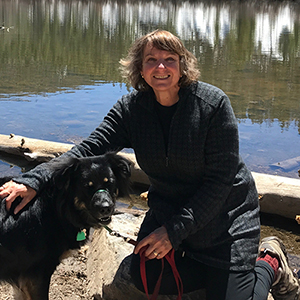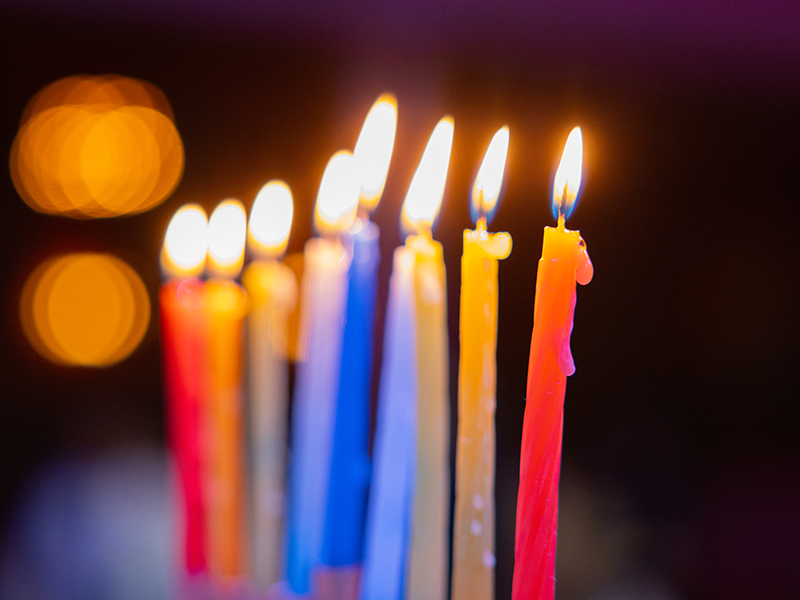Judaism has a deep and rich tradition of storytelling, of passing down stories from one generation to the next. To carry on that tradition, Stories We Tell, from ReformJudaism.org, will share a new story with you every Thursday. Whether you listen while driving to work, preparing Shabbat dinner, or taking your kids to school, each episode will give you a new story to reflect on and discuss with the people in your life. Stories We Tell is a project of the Union for Reform Judaism, a leading voice in the discussion of modern Jewish life.
How important is the history of your family? Maybe you have a family ledger or an old book that carries the events, wisdom, and dreams of those who have passed on. This week, author and puppeteer Marilyn Price tells a story about such a book in “The Old Torah” and shows just how priceless our families’ stories truly are.
Three ways to listen:
- Listen to the full podcast below
- Subscribe to the podcast on Apple Podcasts
- Subscribe to the RSS feed
Transcript
[URJ Intro] Welcome back to Stories We Tell, a podcast presented by ReformJudaism.org. Judaism has always had a deep and rich tradition of passing our stories down from one generation to the next. And we continue to do that here each week. This week, you'll hear a story from Marilyn Price, a puppeteer, author, storyteller, and educator extraordinaire. We hope you enjoy the story of "The Old Torah."
[Marilyn Price] Once upon a time, there was a young woman. And as a wedding gift in her native Russian town, she was given the family Torah. The Torah was a translated form that she could read. It had two vowels, and it had all the things you need. And it went, of course, in the correct order. And she would love to sit and read the laws, the stories.
But in the very center of this book, there were pages. There was a ledger. And on that ledger was recorded every single family event. So when Rachel Rabinowitz was given this book as a wedding gift, she cherished it, for her family was in it. And she liked to imagine that her family as she began to get one would be in it as well.
Rachel and her husband traveled across the big ocean and landed in a city called New York and lived in the Lower East Side. And there, although they had very little except their enormous love for each other, which was good enough, after a time, they had three sons. And those three sons were taken care of by Rachel and her husband. And as time went by and things got a little bit better, Rachel and her husband were allowed to send their sons to college. And some went on to finer educations and moved across the country, not near Rachel and her husband, who lived still in a little apartment on the Lower East Side of New York.
Time went by. And Rachel's book, the Torah, grew with names and numbers and the significance of their life together. Rachel's beloved husband died. And she lived in that tiny apartment with her book and her reading and her community. As Rachel got older, all the people who loved her took care of her.
And then as time went by, she too got sick and died. And all the possessions that she had, which were not many, were in boxes around the apartment. And when they came to clean out all her possessions, they took the books. And some of them were brought to the synagogue, but many were not. They were old and tattered. They took them out to the alley, and they were put into the garbage bins.
Along came that very night a group of boys who were playing little roughhouse. In those days, they called them hoodlums. But they were just kids fooling around. And they were deciding that it was kind of cold, and they would take some of the possessions-- the books, the old newspapers-- and they would put them on fire to make themselves warm. And then they could play ball and tell stories. And that's what they were about to do.
All of a sudden, as they were about to ignite the magazines and the books and the newspapers, one of the newspapers got quite indignant and said, what are you about to do? What are they going to do? They're going to burn me. Look at me. I have words of great import. They can't burn me. It took big presses to make me a newspaper that I am today.
Well, the magazines got quite indignant and said, what are you complaining about? Look at me. I'm full of gloss and advertisements. They can't burn me. It takes months to put me together.
And the prayer book shivered, as did the Torah. Oh, no. I am filled with the words of God with our beautiful language. If I get burned, I do not know what will happen.
Just as they were about to light the books and the magazines and the newspapers, a young boy saw the Torah and grabbed it out of the almost fire and said, oh, you can't burn this. This is a holy book. And he took it with him, put it inside his coat, and took it home.
The very next morning, he went to the little shul. It was the shul that Rachel Rabinowitz has gone to all of her time in New York City. And he gave it to the old custodian. And the custodian took it and put it in the library. And there it sat.
It landed between the Talmud and the Gomorrah. The Talmud looked at it and said, hmm, saved from the fire, were you? Oh, how did you know that? But the Torah, so tired, closed its eyes and fell asleep. And there it remained, gathering dust as all the other books in the synagogue library did as well.
One day, pulling up in front of the synagogue, there came a hired car. And out of the hired car came a young man, a gentleman wearing a suit and a tie. He might have even had a briefcase. He went inside the synagogue, and he called out to anyone who would listen.
Excuse me. Excuse me. I'm wondering if someone could help me. Along came the custodian. He said, oh, certainly, sir. What can I do for you? He said, I'm looking for a book. I'm looking for a copy of the Torah. Oh, we have many, sir.
It's not just a copy of the Torah. It's a special book, for in it it's a ledger with my family history. My grandmother used to keep it. I would just so dearly love to have it. Well, the custodians said, I don't know. It might very well be in the library. And you can certainly go and look. And so he did.
The minute he entered, the minute she heard his words, the old Torah began to quiver with excitement. She said, that could be the grandson of my Rachel Rabinowitz. And he is looking for me. Oh, no, said the Talmud. Oh, no, said the Gomorrah. You will not be found. We never are.
Well, she was so excited that the Torah began to shake, and she fell to the ground. The young man looked down and saw her. He wiped off the cover of the Torah for dust and just glanced through the pages. And there in the middle of that Torah, that old Torah, was what he was looking for-- his family.
He was so excited. He said, I found them. I found my family. And the custodian laughed with them. He said, that does not happen very often.
Well, he took that book back with him to the academic place where he had learned to study these holy books. He took it. And then he took pen to paper. And he wrote, on this day, I and my wife had a granddaughter, a beautiful daughter. And we called her Rachel Rabinowitz after my grandma. And now our family has been found. Amen.
[URJ Outro] After hearing the story "The Old Torah," who is in your family? Where is it written? And how can you find it? We'd love to hear you share that with us on social media.
And thanks for listening to Stories We Tell. If you enjoyed this week's story, please subscribe and rate and review us on Apple Podcasts, Google Play, Stitcher, or wherever you get your podcasts. You can always find new episodes every Thursday on ReformJudaism.org. And don't forget to visit ReformJudaism.org to learn a little bit more about Jewish rituals or culture or holidays and more. Stories We Tell is a project of the Union for Reform Judaism, a leading voice in the discussion of modern Jewish life. And until next week, l'hitroat.
Give to the URJ
The Union for Reform Judaism leads the largest and most diverse Jewish movement in North America.





